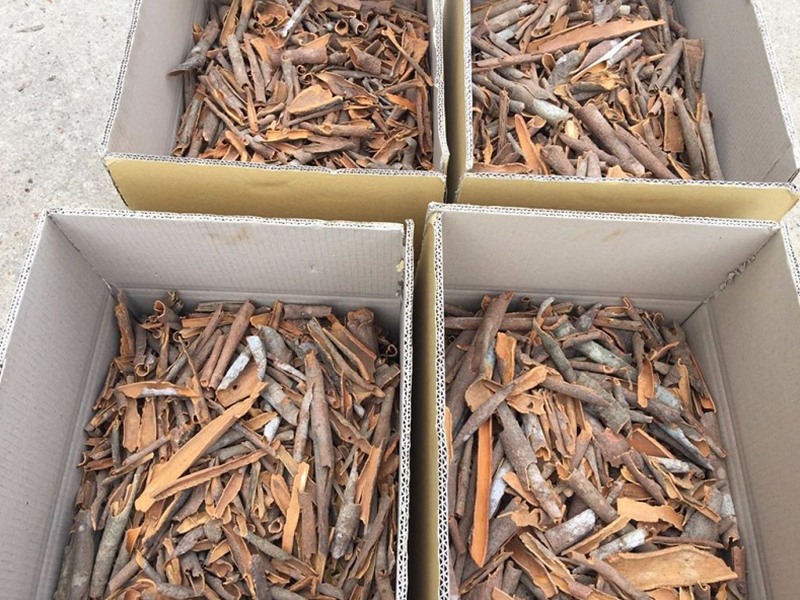How Our Broken Cassia Saves You 20% in Processing Costs – Guaranteed
How Our Broken Cassia Saves You 20% in Processing Costs – Guaranteed
Table of Contents
- Introduction: Why Cost Matters in High-Volume Spice Production
- Saving #1: Reduced Pre-Processing Labor and Equipment Wear
- Saving #2: Lower Energy Consumption in Grinding & Extraction
- Saving #3: Higher Usable Yield per Metric Ton
- Saving #4: Freight and Packaging Efficiency
- Saving #5: Less Loss from Damage, Spoilage, and Breakage
- Case Study: How a Spice Manufacturer Cut 21% from Their Cost per KG
- Final Thoughts: Smarter Procurement with Tinimex
- Contact Tinimex – Your Cost-Effective Cinnamon Exporter
1. Introduction: Why Cost Matters in High-Volume Spice Production
In 2025, spice manufacturers can no longer afford inefficient raw material formats. Every unnecessary dollar spent on labor, shipping, or rejection chips away at your margins. This is where broken cassia proves itself—not just as a flavoring agent, but as a strategic cost-saver.
When chosen correctly and sourced from a reliable partner, broken cassia can slash processing costs by up to 20%, without compromising quality, aroma, or safety.
2. Saving #1: Reduced Pre-Processing Labor and Equipment Wear
Stick cassia often needs:
- Manual breaking or cutting
- Sorting out damaged or uneven pieces
- Time-consuming bark cleaning
With broken cassia:
- It’s already cut into optimal 2–8 cm pieces
- No pre-cutting = faster line throughput
- Less wear on slicers and crushers = fewer repairs
You save both time and machine life.
3. Saving #2: Lower Energy Consumption in Grinding & Extraction
Thanks to its shape and size, broken cassia allows:
- Quicker feed into grinders or infusers
- Shorter extraction cycles
- Less power-hungry processing sessions
Manufacturers report up to 12–15% energy savings just by switching formats.

Industrial grinder with broken cassia: Energy meter reading reduced after switch
4. Saving #3: Higher Usable Yield per Metric Ton
Stick cassia includes:
- More bark curvature waste
- Inconsistent thickness
- Larger trimming loss
This cassia format is sorted and brushed, meaning:
- Less unusable dust
- Better cutting ratio
- Up to 92–95% usable material per ton
More product into your batch = less loss on your books.
5. Saving #4: Freight and Packaging Efficiency
Flat-packed material saves:
- Up to 18% space per export carton
- 1–2 fewer pallets per container
- Less cardboard waste
Even a small 3% saving in shipping costs can translate into thousands of dollars annually for regular importers.

PE-lined cartons of broken cassia stacked at port
6. Saving #5: Less Loss from Damage, Spoilage, and Breakage
Stick bark is prone to:
- Cracking during transit
- Splintering on the line
- Moisture absorption in poor packaging
Our broken cassia:
- Packs tighter with less air
- Absorbs less shock
- Arrives in sealed, moisture-proof cartons
Less loss = higher margin per kg.
7. Case Study: How a Spice Manufacturer Cut 21% from Their Cost per KG
A mid-sized Indian seasoning blender switched from stick cassia to broken cassia in Q2 2024. Results:
- Reduced batch prep time by 40 minutes per day
- Saved 2.3 kWh of energy per shift
- Increased usable input by 8.2%
- Lowered freight cost by 6.8%
Overall savings: 21.4% per finished kg. No complaints from QA, no drop in oil content.
8. Final Thoughts: Smarter Procurement with Tinimex
Cost-cutting doesn’t have to mean corner-cutting. With the right format, the right process, and the right exporter—you get more product, with fewer problems.
That’s why smart spice buyers worldwide choose Tinimex for bulk, food-grade broken cassia that meets cost targets without quality tradeoffs.
9. Contact Tinimex – Your Cost-Effective Cinnamon Exporter
TINIMEX CO., LTD
🏢 4th Floor, No. 40 Ngo Gia Tu Street, Duc Giang Ward, Long Bien District, Ha Noi, Vietnam
📧 info@tinimex.com
🌐 https://tinimex.com
📞 +84 36 680 8683 (WhatsApp / Zalo)
Internal Links:
External Link:

